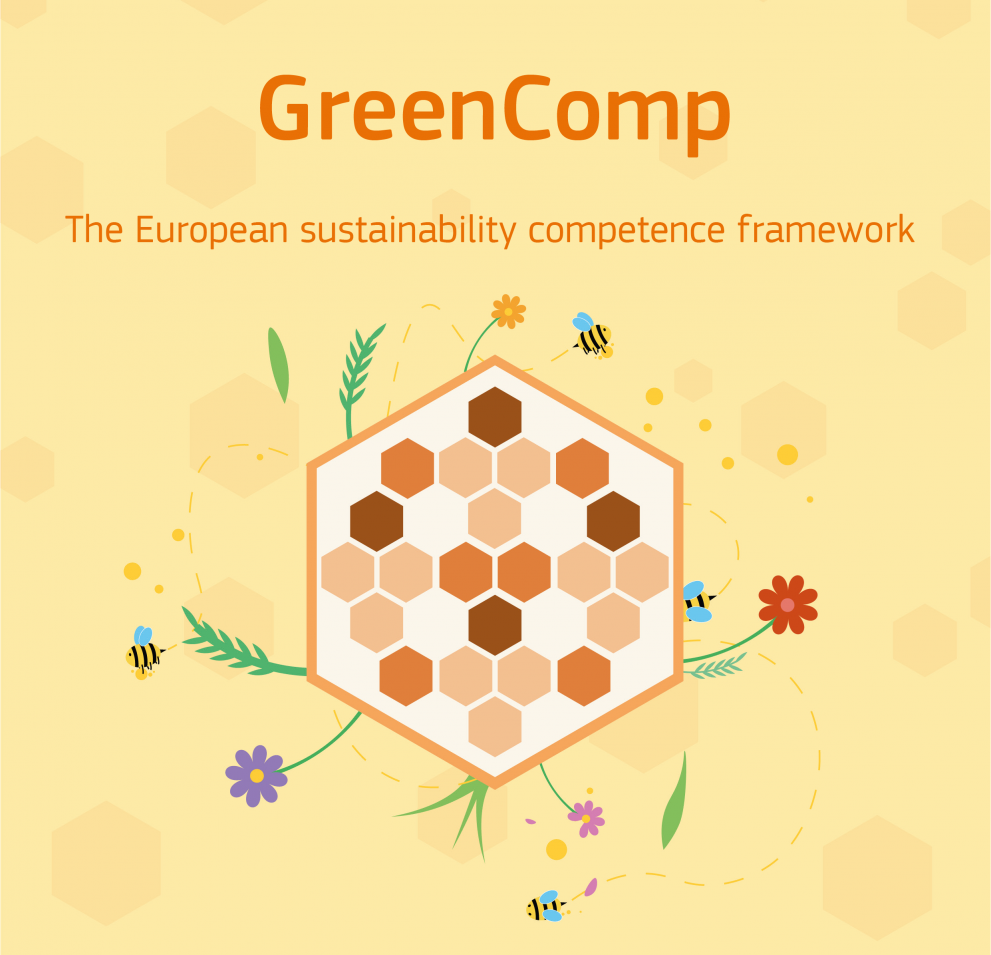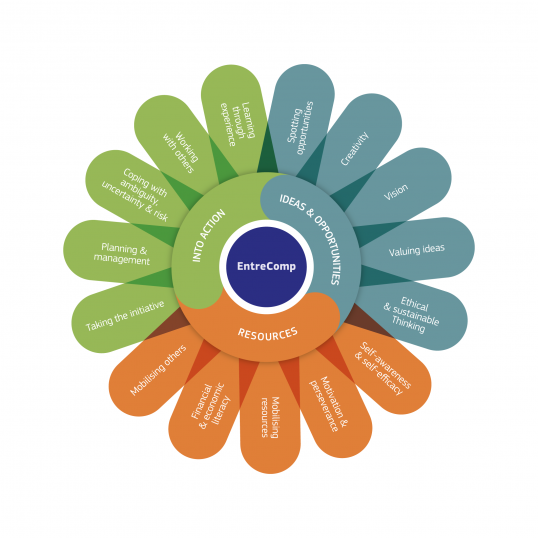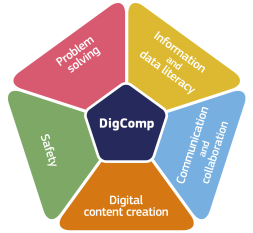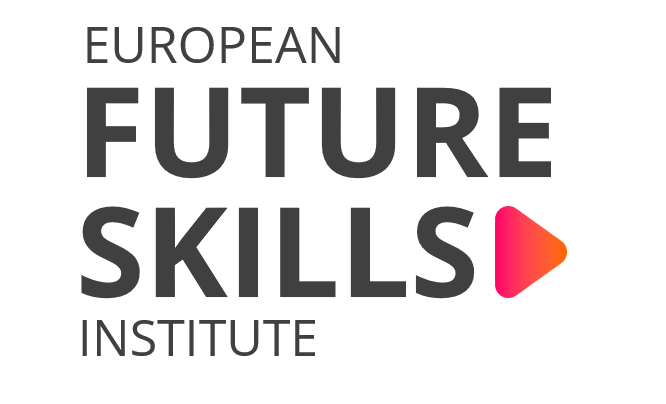In the European Union, Skills Intelligence and Skills Recognition are crucial for workforce alignment with economic and social goals. Skills Intelligence involves analyzing data on skill needs to adapt education and labor markets to industry trends and technological changes. This proactive stance addresses skill gaps, ensuring a flexible workforce. Skills Recognition, meanwhile, validates individuals’ competencies, enhancing their employability and mobility across member states. Together, these elements foster continuous learning, drive innovation, and strengthen the EU’s economic resilience and competitiveness.
We place particular emphasis on upskilling and reskilling initiatives, primarily through non-degree offerings. These programs encompass, but are not limited to:


In a narrow definition/view, future skills refer to the competencies and abilities that are, independent of industry sectors, expected to be in high demand and of high relevance in the upcoming years, particularly as the global job market evolves.
For example:
Digital literacy
Adaptability and Flexibility
Critical Thinking and Problem-Solving
Emotional Intelligence
Sustainability and Environmental Skills
and many more ….
In a broader definition/view, future skills also refer to competencies and abilities that are of high importance to specific industry sectors.
For example:
Safety and hygiene in the food industry
Ethical hacking in the IT industry
Digital pedagogy in education
Digital communication skills for telemedicine
and many more ….
At the European Future Skills Institute, we believe that it is pivotal to address both cross-industry AND industry-specific skills gaps to create a workforce that can tackle sustainability challenges, thereby enhancing both economic competitiveness and environmental stewardship. This approach not only leads to innovative solutions for sustainable development but also promotes social inclusion, as it equips individuals with the skills needed to actively contribute to a greener, more equitable economy.
The European Commission has undertaken significant efforts to develop competence frameworks for three central challenges: Sustainability, digitalisation, entrepreneurship, and lifelong learning. In our projects, we build upon these frameworks to ensure that our projects are aligned with EU priorities, ultimately ensuring that our projects are relevant and impactful.




The European Future Skills Institute (EFSI) employs a comprehensive recognition approach that encompasses two critical elements: the EFSI Future Skills Label (for courses) and the EFSI Future Skills Certificate (for individual learners).
Firstly, EFSI evaluates educational programs/courses to assess their effectiveness in imparting the intended skills development. Courses that meet our stringent criteria are awarded a designation/label as a European Future Skills Institute Certified Course.
Secondly, following certification, course administrators are entitled to use our label on the course completion certificates. Furthermore, should course administrators register the achievements of their participants on the EFSI web portal, these learners are then eligible to obtain a formal EFSI Certificate. This document not only signifies the successful completion of the course but also delineates the specific skills acquired, thereby providing a valuable credential for the learner’s professional development portfolio.

EFSI was founded in 2023 as a spin-out of the Accreditation Council for Entrepreneurial and Engaged Universities. EFSI is led and driven by ACEEU employees who have implemented a large variety of projects in the field of skills development and recognition. We build upon these project experiences (see examples below) and dedicate EFSI entirely to the skills dimensions in education.

Horizon Europe: Digital Europe Programme (2022-2025)

Erasmus+ Alliances for Sectoral Cooperation on Skills (Implementing the Blueprint) (2022-2026)

Horizon Europe: European Excellence Initiative (2022-2025)

Erasmus+ Strategic Partnerships (2021-2023)

Erasmus+ Cooperation Partnerships (2022-2024)
to identify, develop and recognise the skills that Europe needs.

Headquartered in Münster, Germany.
EFSI is dedicated to skills intelligence and recognition.
Wilhelm-Schickard-Str. 14, 48149 Münster
© 2022 Designes Template • All Rights Reserved